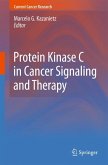The purpose of this book is to provide information on apoptotic processes involved in major neoplastic diseases and their translations into emerging anti-cancer strategies. The book is divided into 15 chapters, each of which will be focused on one particular cancer (breast, bladder, cervical, colorectal, esophageal, gastric, laryngeal, liver, lung, nasopharyngeal, pancreatic, prostate, thyroid, leukaemia and cutaneous malignant melanoma). A number of established leaders in the field have critically summarized the recent discoveries concerning apoptosis in a particular cancer and its potential for anti-cancer treatment. The book describes how the apoptosis plays a role in the specific carcinogen-induced cellular and molecular changes during the development of the cancer, and critically discusses how the emerging anti-cancer strategy can be built by the utilization of the specific carcinogen-related apoptotic pathway. Therefore, this book will be not only for laboratory-based molecular and cell biologists and biochemists in cancer research but also for clinical oncologists and those working in the pharmaceutical and biotechnological industries.
Although research on carcinogenesis has focused more on cellular proliferation than on cell death, yet understanding the mechanism of apoptosis may have important implications for cancer therapy. This book brings together experts from around the world who will discuss the common cancers encountered in clinical practice in the laboratory setting. During the induction of these common cancers, the role of apoptosis in cellular and molecular changes is emphasized, critically highlighting possible anti-cancer strategies. For those who are interested in carcinogenesis and for those who are seeking new approaches to anti-cancer therapy, this book is an important reference. It serves not only as a reference of the current understanding of apoptosis in common cancers but also an important bridge between the laboratory and clinical practice. The editors and contributors are to be congratulated in bringing together an important pool of up-to-date knowledge to light and further our interest in this exciting and expanding ?eld. Arthur K. C. Li Emeritus Professor of Surgery The Chinese University of Hong Kong v Preface The role of apoptosis in cancer development and emerging treatment strategies has rapidly expanded over the past few years. The novel discovery in the apoptotic pa- ways and their relevant molecules provides us not only the knowledge how tumors develop but also the opportunity to design new therapeutic tools to prevent or inhibit the growth of tumors with minimal side-effects. Undoubtedly, understanding the events involved at a molecular level can permit the manipulation of apoptosis for therapeutic purposes.
Although research on carcinogenesis has focused more on cellular proliferation than on cell death, yet understanding the mechanism of apoptosis may have important implications for cancer therapy. This book brings together experts from around the world who will discuss the common cancers encountered in clinical practice in the laboratory setting. During the induction of these common cancers, the role of apoptosis in cellular and molecular changes is emphasized, critically highlighting possible anti-cancer strategies. For those who are interested in carcinogenesis and for those who are seeking new approaches to anti-cancer therapy, this book is an important reference. It serves not only as a reference of the current understanding of apoptosis in common cancers but also an important bridge between the laboratory and clinical practice. The editors and contributors are to be congratulated in bringing together an important pool of up-to-date knowledge to light and further our interest in this exciting and expanding ?eld. Arthur K. C. Li Emeritus Professor of Surgery The Chinese University of Hong Kong v Preface The role of apoptosis in cancer development and emerging treatment strategies has rapidly expanded over the past few years. The novel discovery in the apoptotic pa- ways and their relevant molecules provides us not only the knowledge how tumors develop but also the opportunity to design new therapeutic tools to prevent or inhibit the growth of tumors with minimal side-effects. Undoubtedly, understanding the events involved at a molecular level can permit the manipulation of apoptosis for therapeutic purposes.








